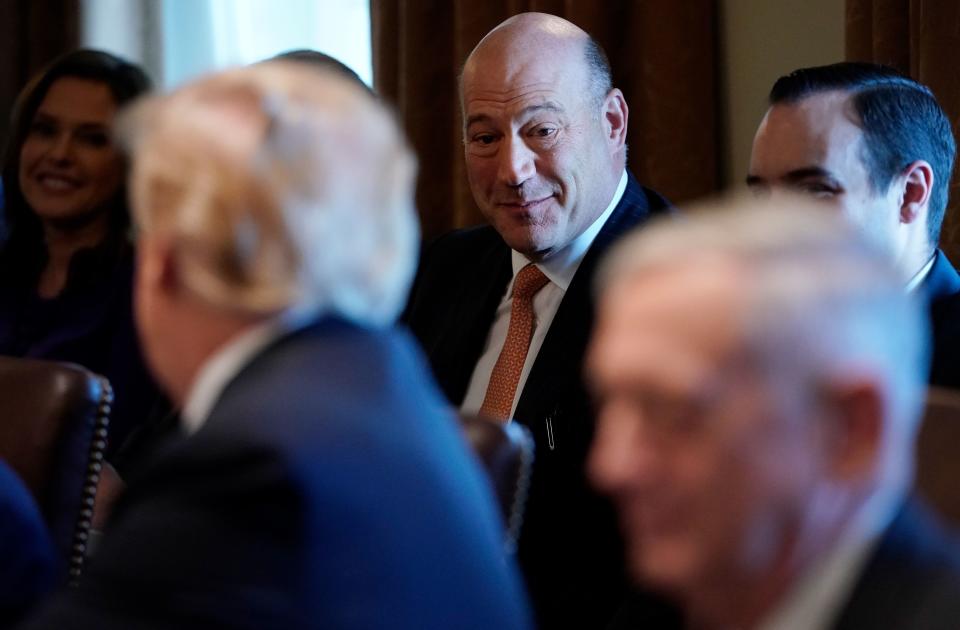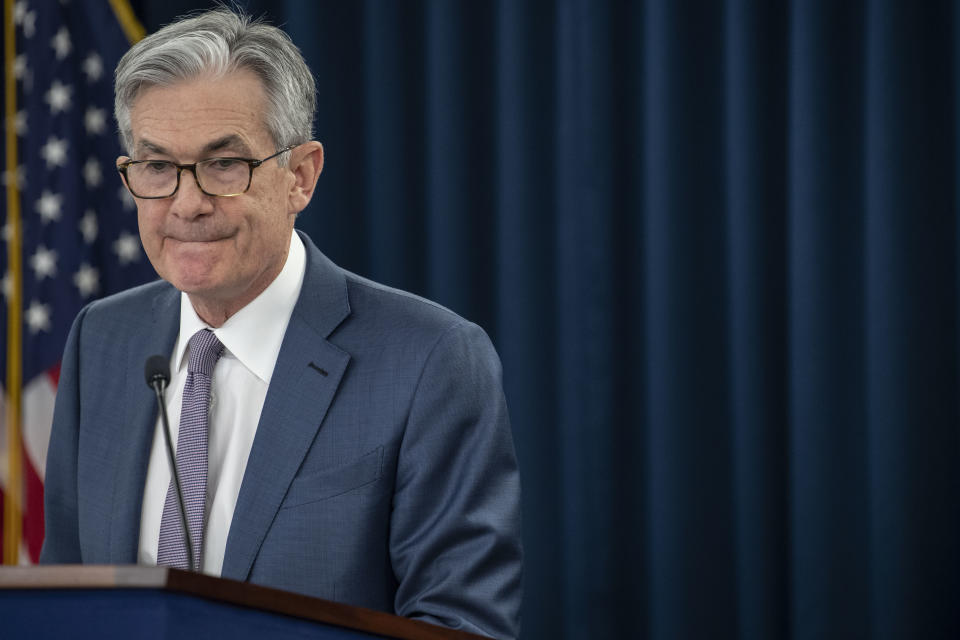Gary Cohn: 'The Fed has basically gone after every asset class we have' with latest move
Gary Cohn — the former Goldman Sachs president who served as President Donald Trump’s National Economic Council director from 2017 to 2018 — is a fan of how the Federal Reserve is approaching the economic crisis facing the U.S. amid the coronavirus pandemic.
“The Fed is moving with just extraordinary speed and they continue to do everything within their sights to help stabilize the economy,” he told Yahoo Finance’s On The Move on Thursday. “But they're moving into uncharted territory for themselves.”
The Federal Reserve unveiled its latest “bazooka” to stimulate the economy on Thursday by providing up to $2.3 trillion in loans for households and local governments as businesses continue to remain shut down to contain the novel coronavirus.
The Fed also released details on its Main Street lending program — which will operate alongside the glitch-beset “Paycheck Protection Program” — to support up to $600 billion in loans for small- and mid-size businesses.
For Cohn, though, this week’s Fed actions might be one the last measures in its arsenal. “I think, at this point, the Fed has basically gone after every asset class we have except equities,” Cohn said.

The central bank has already slashed rates to near zero and Federal Reserve Chairman Jerome Powell vowed on Thursday to continue to use his powers "until we are confident that we are solidly on the road to recovery.”
‘They need to get a professional staff’ for their new loans
One major change is that the Federal Reserve is now supporting direct loans to small and medium-size businesses, something it hasn’t done before.
For Cohn, who also outlined his approach in a recent Wall Street Journal op-ed, the first priority is getting the bureaucracy in place to make these loans.
“They need to get a professional staff that knows how to originate loans and what acceptable terms would be,” he said.
The rocky rollout of the Paycheck Protection Program, as the small business stimulus program is known, could provide some guidance for the Fed. The plan for that program has been that the loan origination is disbursed among a wide array of local financial institutions. That approach has led to confusion as some banks are still struggling to process loans and businesses face a different system depending on which financial institution they choose.
The Fed loans will be disbursed through eligible banks. The plan is that local banks will retain a 5% share of the loan and sell the remaining 95% to a facility to be set up by the Fed.
‘We'll all be better off for knowing what they're doing’
Cohn is also focused on oversight and transparency.
“The good news,” he says, is that the Fed is made up of regional banks with independent board members, suggesting that the Fed “pull people off those independent boards for an oversight team.”
The Federal Reserve and Treasury Department are soliciting feedback from the public on the Main Street Lending program until April 16. “We'll all be better off for knowing what they're doing,” says Cohn.
Oversight of the trillions of dollars flowing from Washington to the U.S. has been a top focus after Trump, on Tuesday, removed the inspector general who was to oversee the government's coronavirus response.
House Speaker Nancy Pelosi said in a statement that Tuesday’s move “is part of a disturbing pattern of retaliation by the president against independent overseers.”
What more can the Fed do?
In his interview with Yahoo Finance, Cohn made clear that he is not advocating for the Fed to buy equities, adding that so far he thinks “the Fed has basically covered all bases that are obvious” to provide liquidity in the economy. Cohn was quick to add that new problem areas could soon crop up, though.

The Federal Reserve has underlined that it has more power it could still leverage. During his speech on Thursday, Chairman Jerome Powell promised that “we will put these emergency tools away” only at the point when the economy headed back to recovery.
The challenge — as it is for every program currently racing to steady the economy — is speed.
“Intention could not be better,” Cohn said. “The one thing I would wish and I hope for is that the money could get out quicker.”
Ben Werschkul is a producer for Yahoo Finance in Washington, DC.
Read more:
Federal Reserve announces $2.3 trillion in funding for households, local governments
'Nightmare': 3 small-business owners describe process of applying for PPP coronavirus loans
Powell: Fed will act 'forcefully, proactively, and aggressively' to support the US economy
Read the latest financial and business news from Yahoo Finance
Follow Yahoo Finance on Twitter, Facebook, Instagram, Flipboard, LinkedIn, YouTube, and reddit.

 Yahoo Finance
Yahoo Finance 